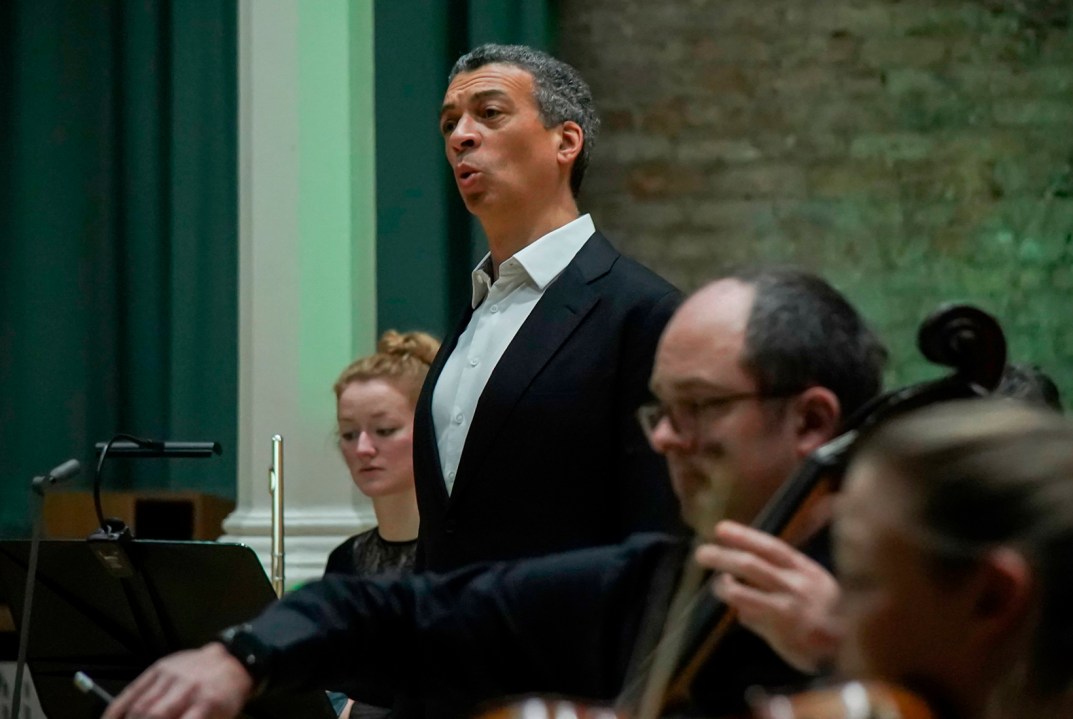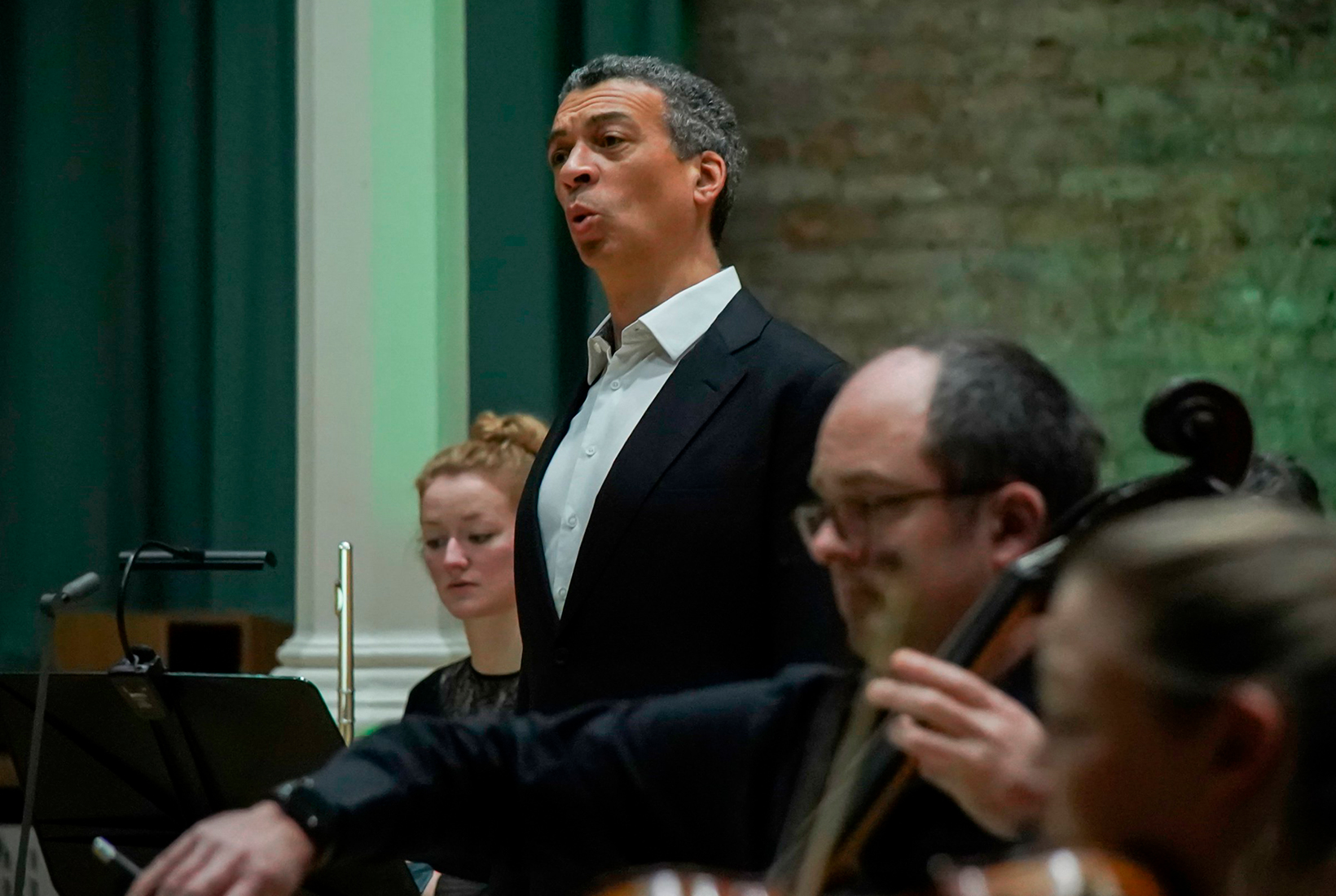Another week, another online concert; and since orchestral music seems likely to be confined to screens and stereos for a while longer, one might as well try and experience something new. But not too new — I’ve pretty much had it up to here with the present. The Hallé orchestra is currently streaming a collection of Shropshire Lad songs by George Butterworth, conducted by Sir Mark Elder and sung by the baritone Roderick Williams in orchestral versions of his own creation. That seems ideal: music by the most perfect of English classical songwriters, in fresh and unfamiliar new colours. And time spent with an artist as likeable and intelligent as Williams is never wasted.
It’s filmed in the Hallé’s rehearsal hall, a converted church in Ancoats, and considering that it’s coming to you through speakers and a screen, it’s a strikingly direct way of launching Williams’s new arrangements into the world. There’s no pretence at replicating a live concert; the musicians are spaced widely around the hall in the now-standard Covid configuration, and Williams stands among them, singing direct to the camera. With a less sincere performer, it could feel unnerving — like participating in an unusually melodious Zoom meeting. This level of intimacy is impossible in even the smallest concert venue.
How I’d love to have felt, as well as heard, the physical impact of those vintage horns and brass
But with Williams it sort of works, and it certainly helps that every word he sings is perfectly clear and audible. No subtitles are provided or needed. Williams is a champion of classical song in the vernacular (his recording of Schubert’s Winterreise in English prompted an enjoyable outbreak of handbag-clutching among the Wigmore tendency) and it’s obvious, here, that he loves Housman’s poetry as much as Butterworth’s music.
Possibly he loves that music almost too much: his orchestrations busily sketch in layers of subtext and association that are only implied by Butterworth’s understated piano-and-voice originals.









Comments
Join the debate for just £1 a month
Be part of the conversation with other Spectator readers by getting your first three months for £3.
UNLOCK ACCESS Just £1 a monthAlready a subscriber? Log in